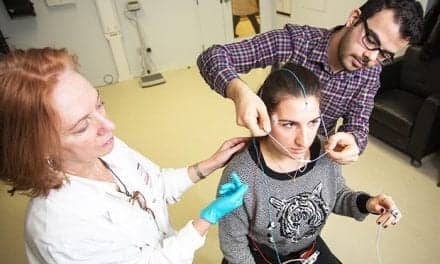Researchers at New York University found that human memories are strengthened during periods of rest, even while awake. Previous studies have shown that this process occurs during sleep, but not during times of awake rest.
“Taking a coffee break after class can actually help you retain that information you just learned,” said Lila Davachi, assistant professor in NYU’s Department of Psychology and Center for Neural Science. “Your brain wants you to tune out other tasks so you can tune in to what you just learned.”
To determine if memory consolidation occurred during periods of awake rest, the researchers imaged the hippocampus, a brain structure known to play a significant role in memory, and cortical regions during periods of awake rest. Previous studies have demonstrated regions of the brain that were more active during periods of rest, but their function at times of awake rest had been unclear, according to the researchers.
To test the associative memory of study subjects, they were shown pairs of images containing a human face and an object (eg, a beach ball) or a human face and a scene (eg, a beach) followed by periods of awake rest. Subjects were not informed that their memory for these images would later be tested, but they were instructed to rest and simply think about anything that they wanted, but to remain awake during the resting periods. The researchers used functional magnetic resonance imaging (fMRI) to gauge activity in the hippocampus and cortical regions during the task and during the ensuing rest period.
The researchers found that during rest after the study experience, there was a significant correlation between brain activity in the subjects’ hippocampus and cortical regions that were active during the initial encoding of each stimulus pair. However, this boost in brain correlations was only seen following experiences that were later memorable, which suggests these parts of the brain act in tandem for a purpose—to consolidate memories during rest.
Additionally, when examining each subject individually, it was found that subjects who had greater resting correlations between the hippocampus and cortex also exhibited better performance on a subsequent associative memory test, while those whose brain correlations were weaker had worse memory; in other words, the greater the activity in hippocampus and cortical regions, the stronger the memory.
The findings appear in the latest issue of the journal Neuron.



